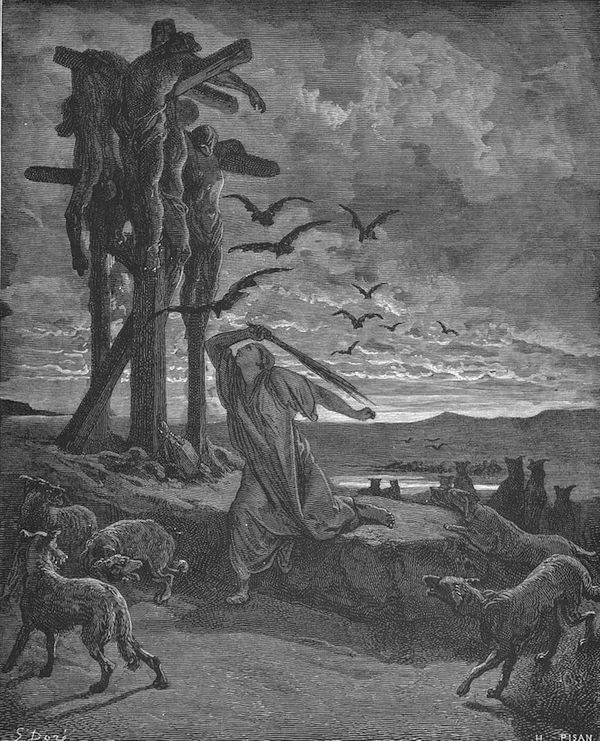For the past week or so, I have been traveling in a country I had not previously visited. Yesterday, we drove again past houses small and a little larger, surrounded by fortressed fences, and I wondered about the fearful stories behind those defenses. Then, there was the cemetery, bounded by angles razor wire of the kind and style I am used to seeing around correctional facilities and military installations.
The proverbial banality of evil is such as to acclimatize us to a certain level of violence – that which we might consider “normal,” “occasional,” “random,” until something – some incident, scene, or someone catches our attention, provokes us to examination, self-examination, repentance, and prayer.
I wondered, in passing, why would you need to guard the dead?
In 2 Samuel 21, Rizpah sets herself to watch over the bodies of her sons and their brothers, whom David had considered of sufficient value to pay off the wounded debts and demands of his enemies. For an entire season, she lay on the hillside, scaring the crows from their bones, until the king finally took notice and restored the dead to a place of honour and acknowledgement.
Those who would watch over the dead – Mephibosheth, Michael, Trayvon, Tamir, Freddy, Philando, Anthony and the others – they make us alive to the fact that the violence we are tempted to accept as normal, occasional, random, is nothing of the kind. It is sinful, oppressive, deadening.
Pilate set a guard against Jesus’ tomb because, he said, he was afraid that Jesus’ followers might steal his body; but perhaps he was a little afraid that the rumours of resurrection might be true, and that real justice might undo his rule of violence.
For such is the reign of God: a country in which violence does not wield power, oppression has no weight, even death has lost its sting, and war has been drowned, dissolved by the flooding rivers running down from the throne of God, washing away barbed wire fences, rolling rocks, opening at last our deadened hearts to the possibility of another life.
The Revd Rosalind C Hughes is the Rector of the Church of the Epiphany in Euclid, Ohio, and a regular contributor to the Episcopal Cafe.
Image: By Gustave Doré – Doré’s English Bible, Public Domain, Link

